If you’re considering a career in community rehabilitation, understanding what training involves can help you feel more confident before starting. A good course doesn’t just teach theory—it prepares you for the day-to-day realities of working with individuals on probation or parole.
So, what exactly will you learn in a Probation & Parole Officer training course? Here’s what to expect.
1. Core Legal Knowledge
You’ll explore the laws and regulations that govern probation and parole in the UK, including:
- The Offender Rehabilitation Act
- The Criminal Justice Act
- Roles of the court, police, and parole boards
- Conditions of supervision and breach procedures
This foundation helps you make informed decisions in the field. To see how that applies in practice, check out Career Path: How to Become a Probation & Parole Officer in the UK.
2. Risk Assessment and Management
One of your main responsibilities as an officer will be assessing risk. This part of the course will teach you how to:
- Identify levels of risk to the public
- Use formal assessment tools
- Make decisions on supervision intensity
- Document and report findings accurately
These skills are essential for protecting the public and ensuring clients get the right level of support. Top Skills Every Probation & Parole Officer Must Have covers this in more detail.
3. Behavioural and Psychological Insight
You’ll study the causes of offending and relapse, including:
- Mental health conditions
- Trauma-informed approaches
- Substance misuse
- Cognitive behavioural patterns
This helps you understand why people behave the way they do—and what support might actually help them move forward.
4. Case Management and Report Writing
You’ll learn how to:
- Write pre-sentence and parole reports
- Develop personalised supervision plans
- Track progress across weeks and months
- Communicate clearly with courts, prisons, and external agencies
These are vital day-to-day tasks, and you can see them in action in A Day in the Life of a Probation & Parole Officer.
5. Communication and Conflict Resolution
Not every conversation will be easy. This section of training prepares you to:
- Handle difficult or confrontational clients
- Build trust and rapport
- Use de-escalation techniques
- Set clear boundaries with empathy
These communication skills are key to reducing reoffending, which is explored in How Probation & Parole Officers Help Reduce Reoffending.
6. Ethics and Professional Conduct
You’ll also cover topics like:
- Confidentiality and information sharing
- Professional boundaries
- Handling bias and discrimination
- Working in diverse communities
These lessons ensure you act fairly and responsibly in every situation.
Final Thought
A strong Probation & Parole course doesn’t just prepare you for the job—it shapes how you lead, support, and protect others. It equips you with tools to influence real change in people’s lives, while keeping your own wellbeing and values intact.
- All Courses
- QLS Endorsed Single Course796
- Mega Bundles365
- Management Courses328
- Technology Courses235
- Teaching Courses196
- Business Courses173
- Health Courses95
- Law Courses85
- Marketing Courses67
- Development Courses66
- Job Guarantee Programme53
- Counselling Courses38
- QLS Endorsed Single Course with Free Certificate37
- Engineering Courses21
- Creative Courses19
- Agriculture Courses6
- Regulated Courses6
- Psychology3
- Science Courses2
- 4-in-1 bundle1
- Arts Courses1




0 responses on "Inside the Course – What You’ll Learn About Probation & Parole"